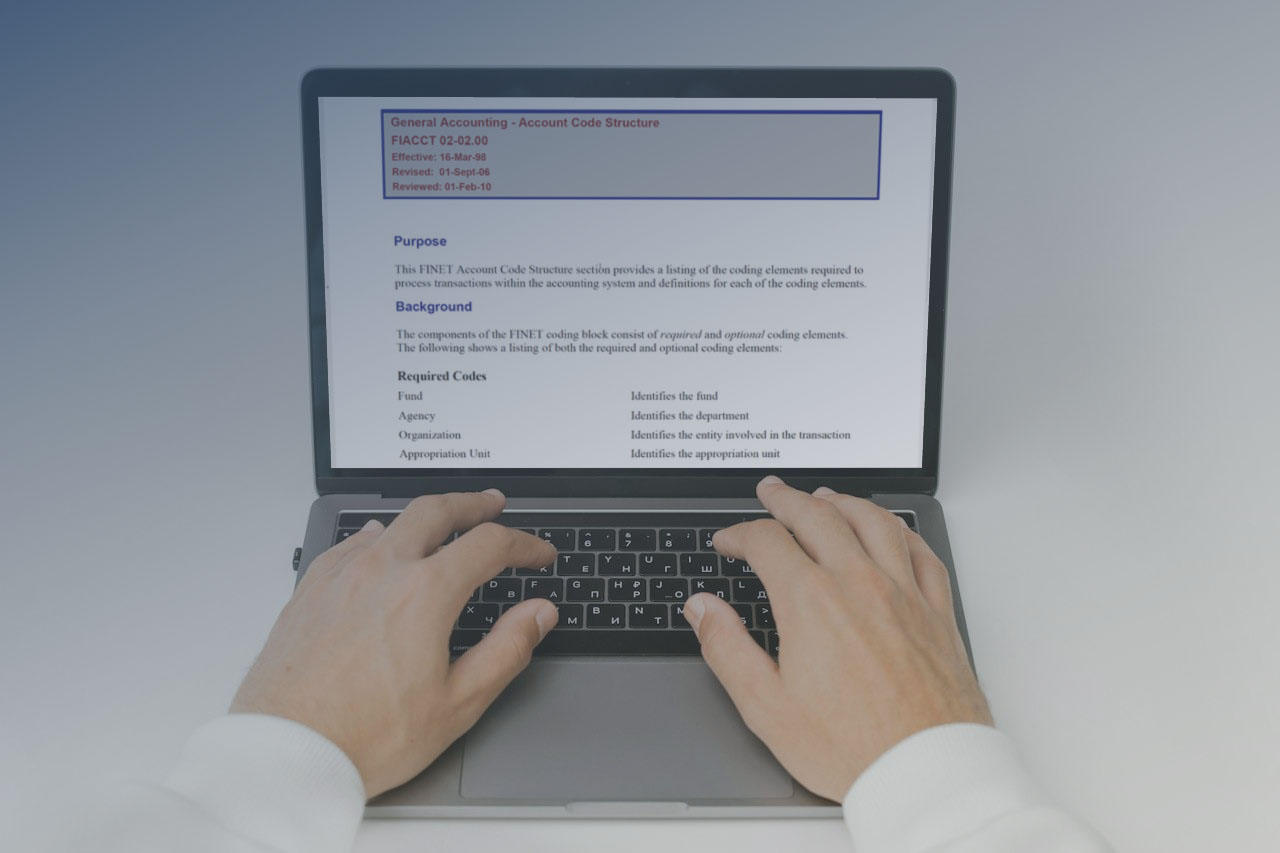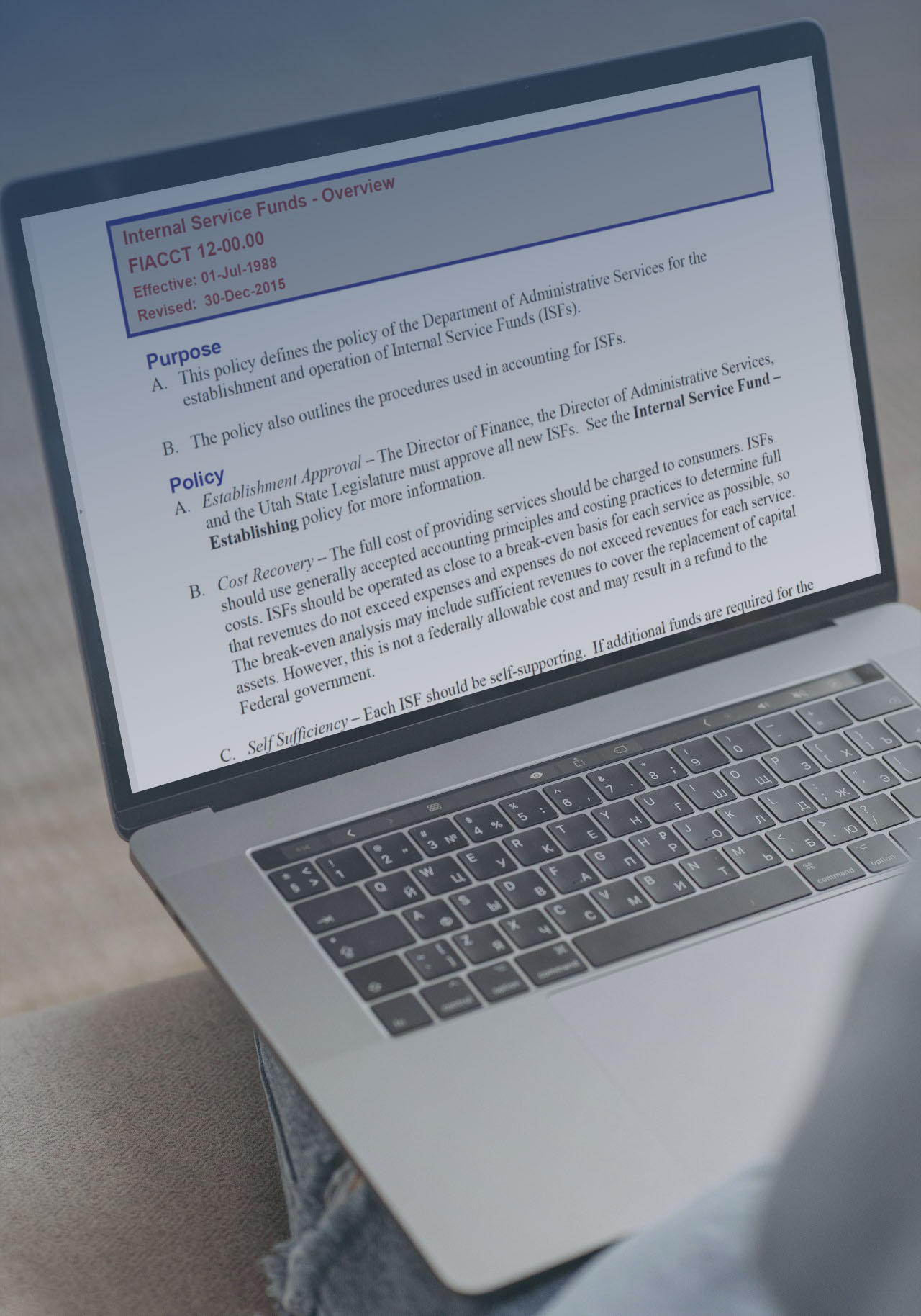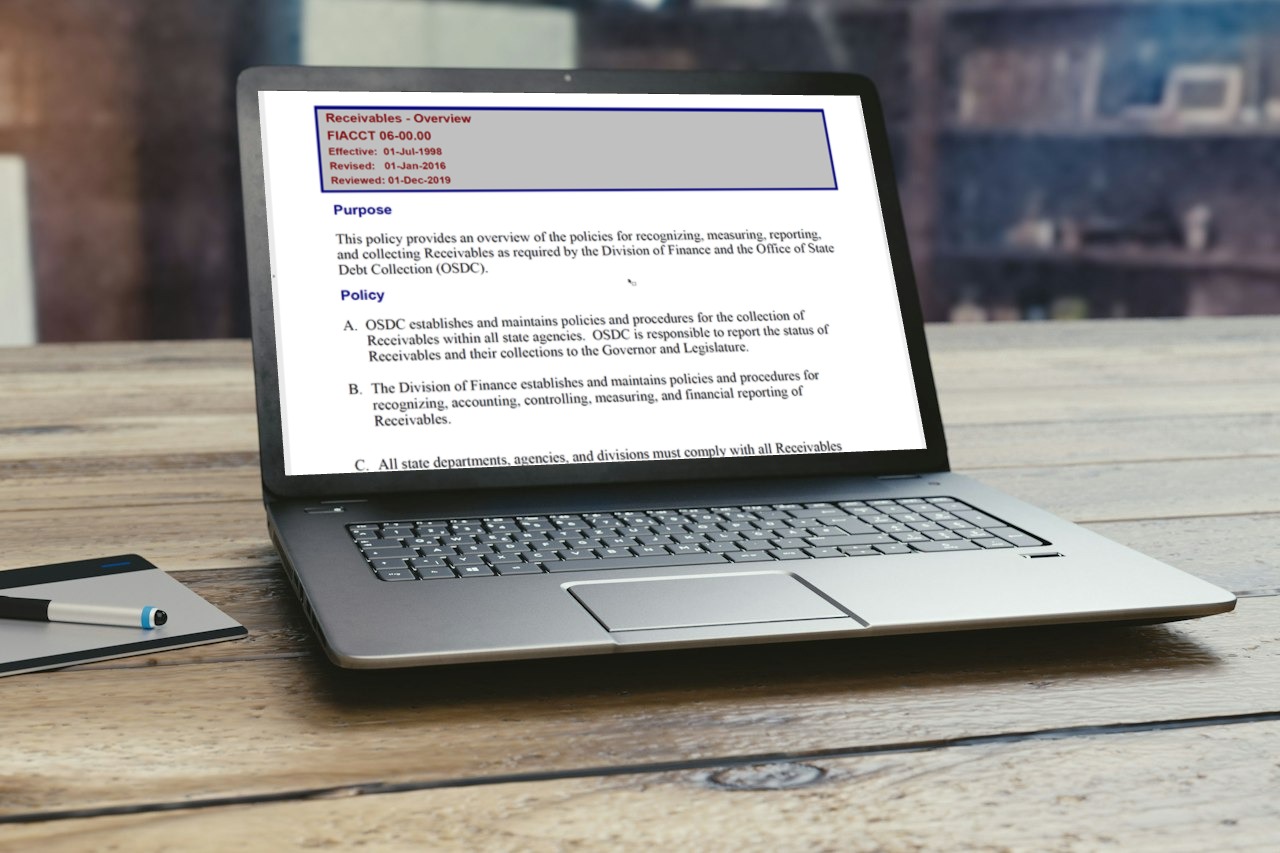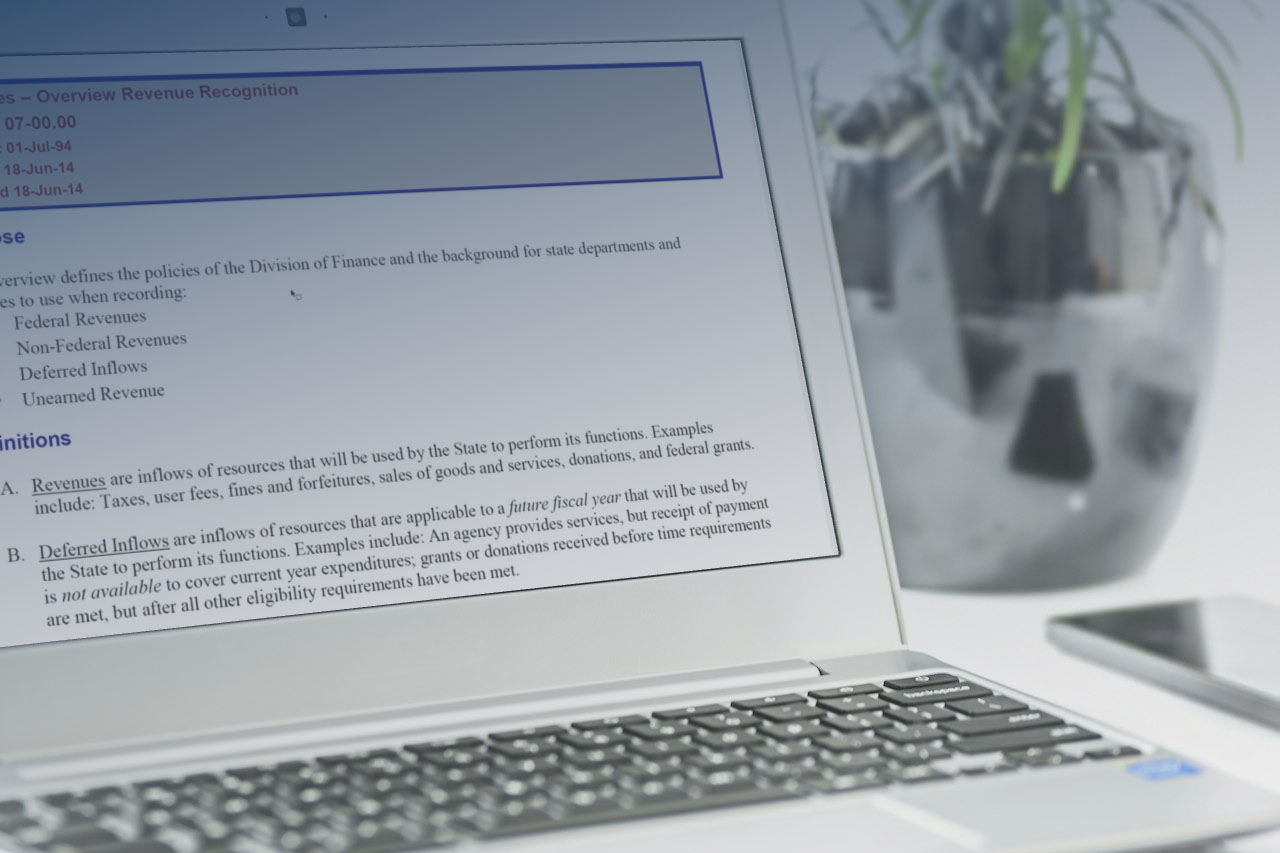Policies
State agency resources
Learn our regulations and procedures
One of our responsibilities is to develop and maintain policies so that all Utah state agencies can complete their financial duties correctly and confidently. The goal of our policies is to help agencies comply with state and federal regulations when making decisions.
Bank accounts policy
This policy discusses opening and closing bank accounts as well as reconciling bank statements. Agencies must contact the Office of State Treasurer to open or close any bank account. Agencies must compare bank statements to the transactions recorded in FINET each month.

Budgets policy
This policy discusses appropriation, revenue, and expense budgets. An appropriation budget is used by the GovOps Division of Finance to monitor spending. Detail revenue and expense budgets are a control tool used to establish a spending plan for each state agency. Agencies must enter these budgets into FINET and maintain them.

Cash receipts policy
This policy discusses the standard procedures agencies must use when handling cash receipts. Part of standard procedure is recording cash receipts transactions in FINET. Following these standard procedures helps agencies detect errors and increases public confidence in the collection of cash receipts.

Data warehouse policy
This policy discusses who may access the data warehouse. The data warehouse contains data that is used for reporting and data analysis. Users can run queries on the data using tools like Microsoft Access or COGNOS Business Intelligence.

Fixed assets policy
This policy discusses the accounting standards for recording fixed assets. A fixed asset is a piece of property or equipment used for more than 1 year that cost $5,000 or more. Fixed assets can include buildings, machinery, land, roads, dams, lighting systems, bridges, motor vehicles, furniture, office equipment, computer equipment, computer software, licensing agreements, betterment, water systems, works of art, historical treasures and collections.

General accounting policy
This group of policies discusses accounting in FINET, such as procedures for month end closing and journal vouchers. You’ll also find the following in this group of policies: investments of restricted and trust funds, how to report theft involving an employee, and using money recovered from paper recycling efforts.

Grant accounting policy
This policy discusses the Cash Management Improvement Act and how it affects the way agencies account for grant money.

General accounting policy
This policy covers what agencies are allowed to spend to help employees feel valued, appreciated, and recognized for achievements. It also covers what agencies are allowed to spend for activities such as strategic planning, team building, and training.

Internal control policy
This policy outlines the requirements for state agencies to implement, assess, and maintain good internal controls over state operations, financial reporting, and compliance.

Internal service funds
An internal service fund is a fund that provides goods or services to other state agencies on a cost reimbursement basis. This policy defines the rules for establishing an internal service fund, procedures for submitting budget requests for internal service funds, acquiring fixed assets using an internal service fund, and how to set rates for services paid for with an internal service fund.

Inventory policy
This policy discusses rules for controlling inventory, including receiving inventory, moving inventory out of the warehouse, and recording inventory information in FINET.

Labor distribution policy
Agencies need to set aside funds to pay for employee benefits. These funds are separated into 3 areas: time distribution, mandatory pools, and optional labor additives. This policy defines how direct and indirect labor costs are recorded in FINET and paid to employees.

Payments policy
This group of policies covers several subjects including vendor payments, employee reimbursement, the Finder system, electronic devices provided by the state, purchasing cards, payment schedule, check warrants, and more.

P-card policy
This policy covers the responsibility of p-card holders, applying for p-cards, rules for purchases, limiting p-card purchases through spending limits and blocking merchant category codes, what to do if a p-card is lost or stolen and how to return a p-card that is no longer needed. It also covers reconciling your p-card.

Payroll policy
This group of policies discusses information about employee W-2 forms, social security card verification, direct deposit, using the Employee Self Service system, and more.

Project accounting policy
This policy discusses the project accounting module in FINET; this module’s function is to identify and collect all financial information related to a specific project.

Purchasing policy
This policy discusses how to record payments in FINET related to certain procurement types and specifies the steps to follow to carry over transactions at the end of the fiscal year.

Receivables policy
This policy outlines the requirements for recording receivables.

Revenues policy
This policy discusses the requirements the GovOps Division of Finance must follow to maintain a database with revenue information. It also discusses how the GovOps Division of Finance must manage revenue received from the federal government.

Travel policy
Anyone who travels for state business is responsible to understand our travel policy. This group of policies discusses the travel system Concur, how to request travel, reimbursement rules, and accommodations for employees with disabilities.
